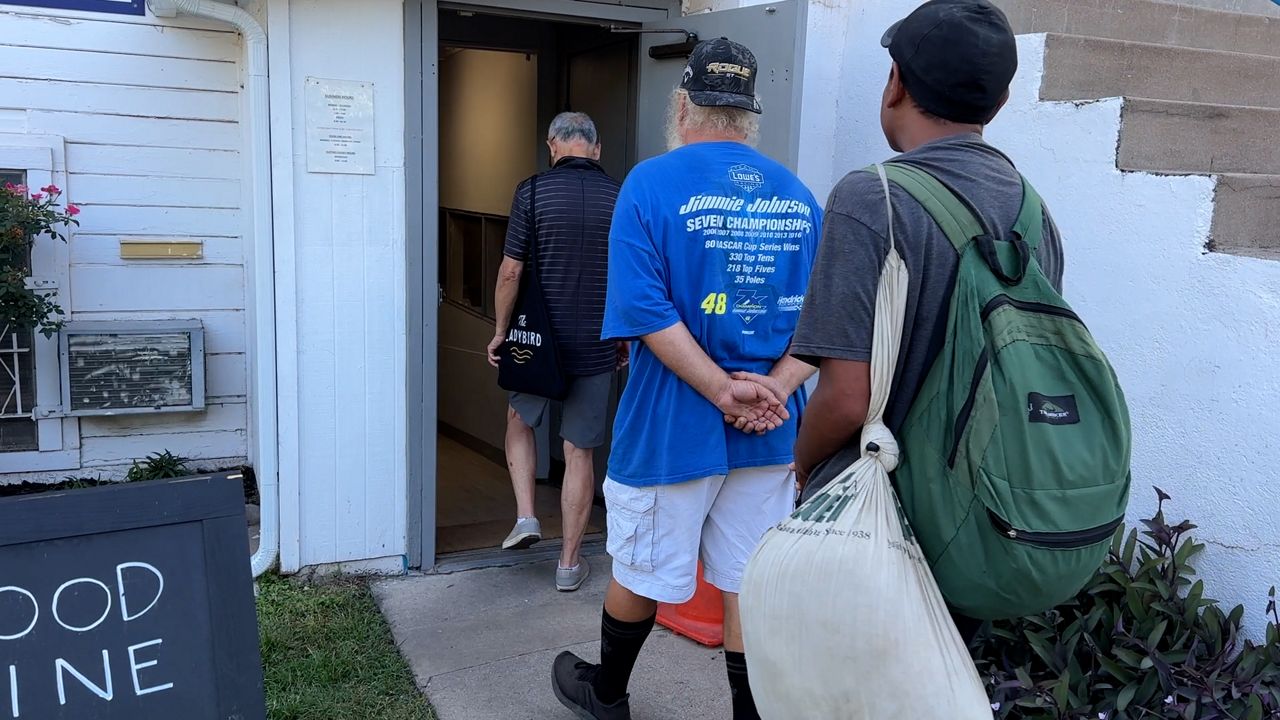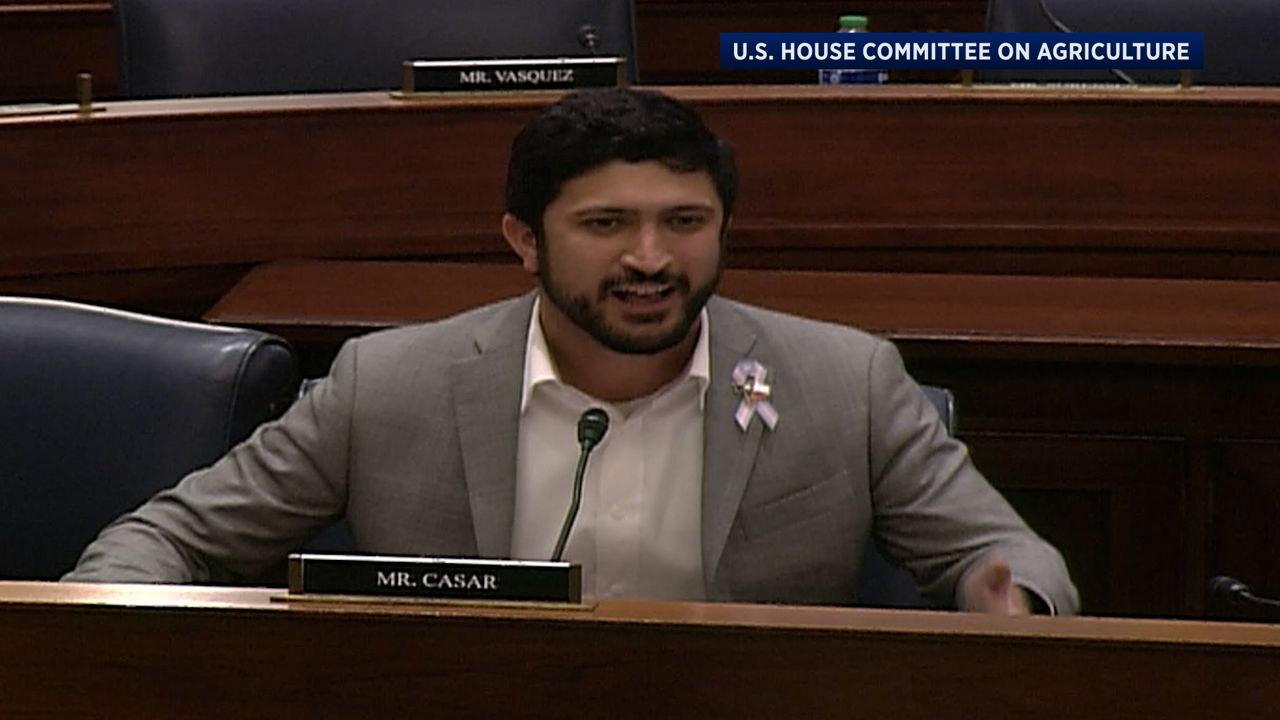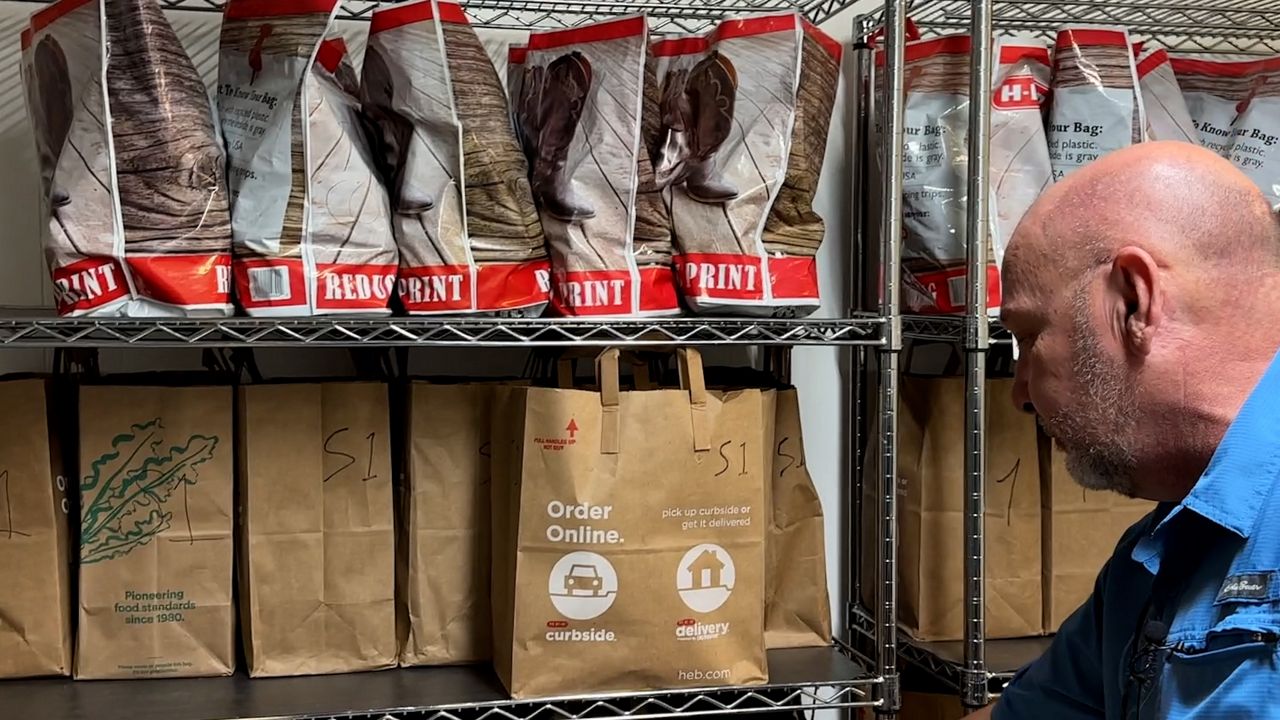AUSTIN, Texas — Baptist Community Center Mission Executive Director Chris King grew up in Austin, so seeing his community face a food insecurity rate of about 15%, according to the city, drives the organization's mission.
“It’s hard,” King said. “Some days we get three boxes of food. Today we got a lot of boxes of food and we just never know what’s coming in.”

“It was already hard, then food [costs] started rising, rent is rising, SNAP benefits got reduced,” King said. “We had some families go from $850 a month in benefits to $200 a month in benefits."
According to Feeding Texas, more than 1 million people are now receiving reduced funding for groceries. In Travis County alone, residents are losing $8 million in SNAP benefits.
“We open up at 8:30 a.m., sometimes we’re out of food by 9:30 a.m.,” King said. “It’s hard to tell that to people that are hungry.”
Austin resident Robert Natal is one of those Texans struggling to pay for groceries and said that after months of waiting, he still hasn’t received benefits to fight these difficult times.
“I applied for it and I haven’t gotten any answers,” Natal said. “Prices are going up and food is expensive. I’ve told a lot of people that they need to come to this place.”
U.S. Rep. Greg Casar, D-Texas, whose district stretches from Austin to San Antonio, wishes SNAP benefits weren’t cut federally. He believes they’re simply too important to low-income communities across the state.

“Texas has more food insecure and hungry children than any other state in America,” Casar said.
“We’re trying to defend the programs we’ve got, talk about why they’re really helping people and pulling them out of poverty,” Casar continued. “Looking forward to a day when we can expand those benefits and not cut them.”
While the back and forth continues in the capital, those picking up the slack in places like the Capital City, know the fight against hunger will take every philanthropic effort.

“We helped 60 families through the food pantry and I looked every month since March; we’ve doubled the families we're serving,” King said.



